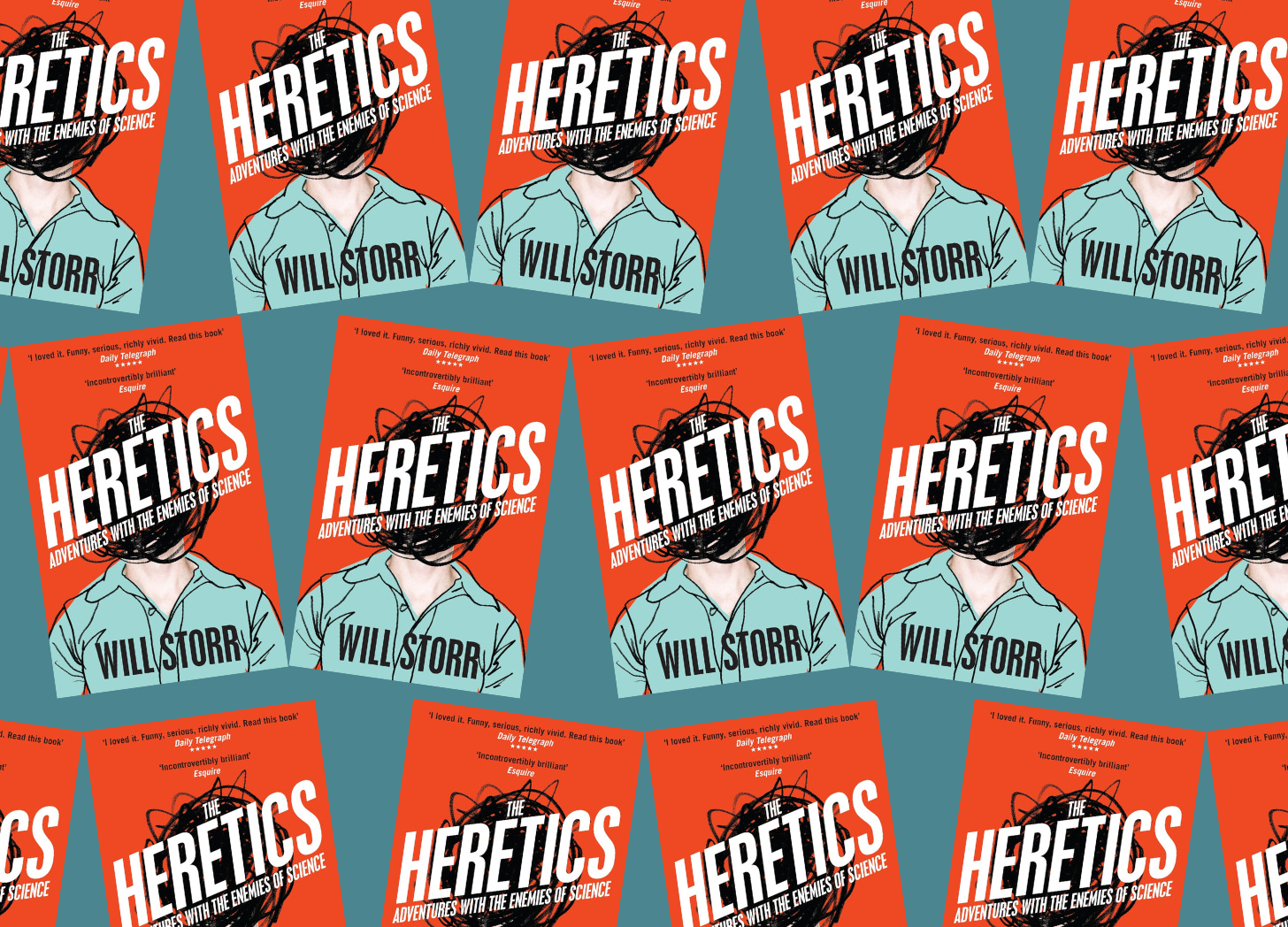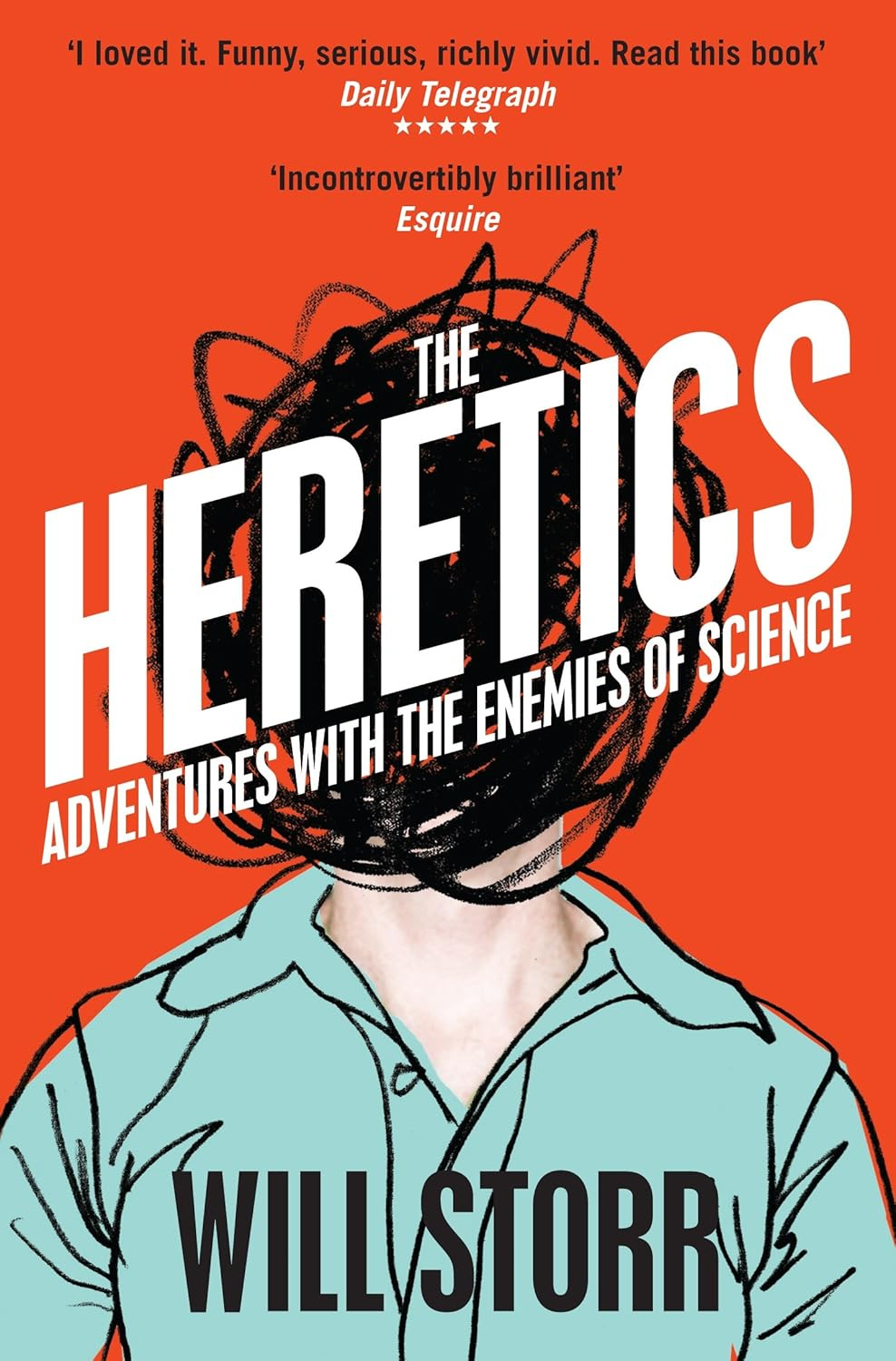Just six years before reading Will Storr’s The Heretics: Adventures with the Enemies of Science, you could have found me in the dark with my ghost-hunting team, eyes closed, “raising energy” so spirits could move a table. Earlier this year, the president of the James Randi Educational Foundation, D. J. Grothe, referred to me as one of the “workhorses of skepticism” doing actual investigations of paranormal claims.
I mention this because my journey from believer to sceptic is exactly the kind of transformation Will Storr is interested in. I’m not the sort of sceptic who’s content to say “ghosts break the laws of physics, therefore they don’t exist” and leave it there. I know what it’s like to be absolutely sure I’m right, then have to admit I was spectacularly wrong. That experience makes me sympathetic to people who believe strange things – I know how easy it is to build a whole identity on top of a faulty story.
That theme runs right through The Heretics. Storr sets out to understand not just what people believe – whether it’s homeopathy, ESP, Holocaust denial or Satanic ritual abuse – but why they believe it, and how they navigate a world that often sees them as foolish or dangerous. Along the way he speaks to a wide range of “heretics” and to scientists, psychologists and philosophers who study bias, memory and belief. The result is a book that’s often funny, sometimes uncomfortable, and occasionally quite moving.
Storr has taken some flak for the way he does this. A Guardian review criticised him for giving too much sympathetic space to people like David Irving, homeopaths, and Rupert Sheldrake, and for not hitting hard enough on the harm unscientific ideas can cause. I understand that concern, but I think it slightly misses the point of what Storr is doing.
At one stage, he admits that when he attends a sceptics’ conference he finds himself disliking the audience, without really knowing why. As someone who once sat on stage with Chris French at those events – and who used to be mocked by sceptics when I still believed in “psychic energy” – I recognised that feeling. When you’ve spent time listening to people with fringe beliefs, you’re very aware of how easily they’re dismissed as stupid. That makes you more wary of joining in with the pile-on.
Storr’s empathy doesn’t mean he buys into bad ideas. What he shows, very effectively, is how people can slide into self-validating loops where coincidence becomes proof and doubt is treated as an enemy. A therapist calmly explaining how Satanic cults eat babies sounds absurd from the outside, but Storr lets us see how, from her point of view, every new anecdote becomes another “confirmation”. Likewise, the voice-hearer who detunes a radio to receive “spy messages” is a chillingly familiar example of pattern-finding gone wild. When he demonstrates this for Storr and a random broadcast appears to line up perfectly with his fears, you can feel how convincing that would be from the inside.
It reminded me very sharply of the hours I used to spend listening to ghost-hunting recordings, straining to hear voices of the dead in the fuzz. When you’re desperate for validation, you will find it – even when it isn’t really there.
One of the strengths of The Heretics is that it doesn’t pretend this vulnerability to bias only applies to believers. Storr talks to neuroscientists and psychologists about how everyone – including sceptics – is prone to confirmation bias, motivated reasoning and narrative loyalty. People arrive at their scepticism through different routes, and that shapes how they engage with others. Someone who has never believed in ghosts is less likely to be patient with ghost believers than someone who has been there, for example. The book doesn’t let sceptics off the hook for arrogance or poor communication, either. The “Ghosts don’t exist, move on” approach might feel satisfying, but it rarely changes minds.
Toward the end of the book, Storr reflects on the need for humility – the idea that however right we feel, we might still be wrong, and that we are all, in some sense, creatures of illusion made out of stories. That line has stayed with me more than almost anything else in the book, because it captures what I’ve learned in my own shift from believer to sceptic: that certainty is seductive, and letting go of it hurts, but it’s also where genuine honesty lives.
There is a section that will likely make fans of James Randi uncomfortable; Storr digs into some of Randi’s less appealing comments and contradictions. I think it’s important to say that one person’s flaws don’t invalidate an entire movement, but they do remind us that no one – however clever or principled – is immune to bias.
I loved The Heretics. I’d recommend it to anyone interested in why people believe weird things, but also to sceptics who are curious about how they themselves might be perceived. Read it, and read it again. Take notes. Follow up the studies and stories. And maybe sit with the possibility that, as right as you might feel, you could still be wrong about something important – and that this doesn’t make you weak. It just makes you human.
Enjoy this? You can get more articles via my newsletter, The Ghost Geek, or support my work with a one-off tip on Buy Me a Coffee. Purchases made via links in this review may earn me a small commission through Amazon Affiliates at no extra cost to you.




